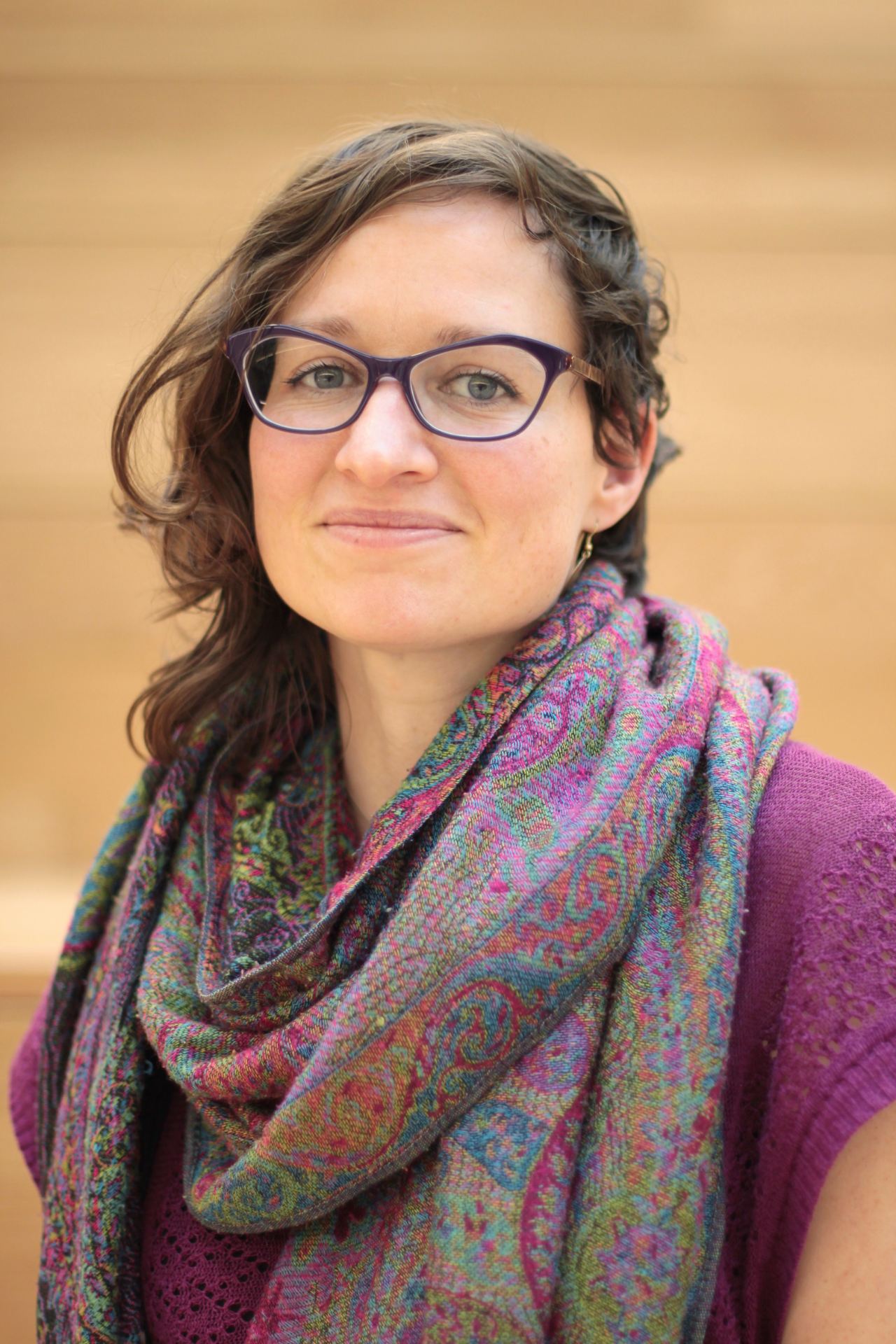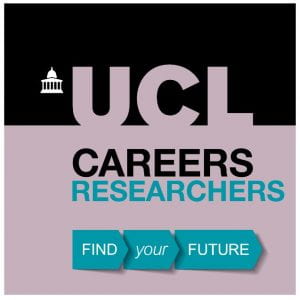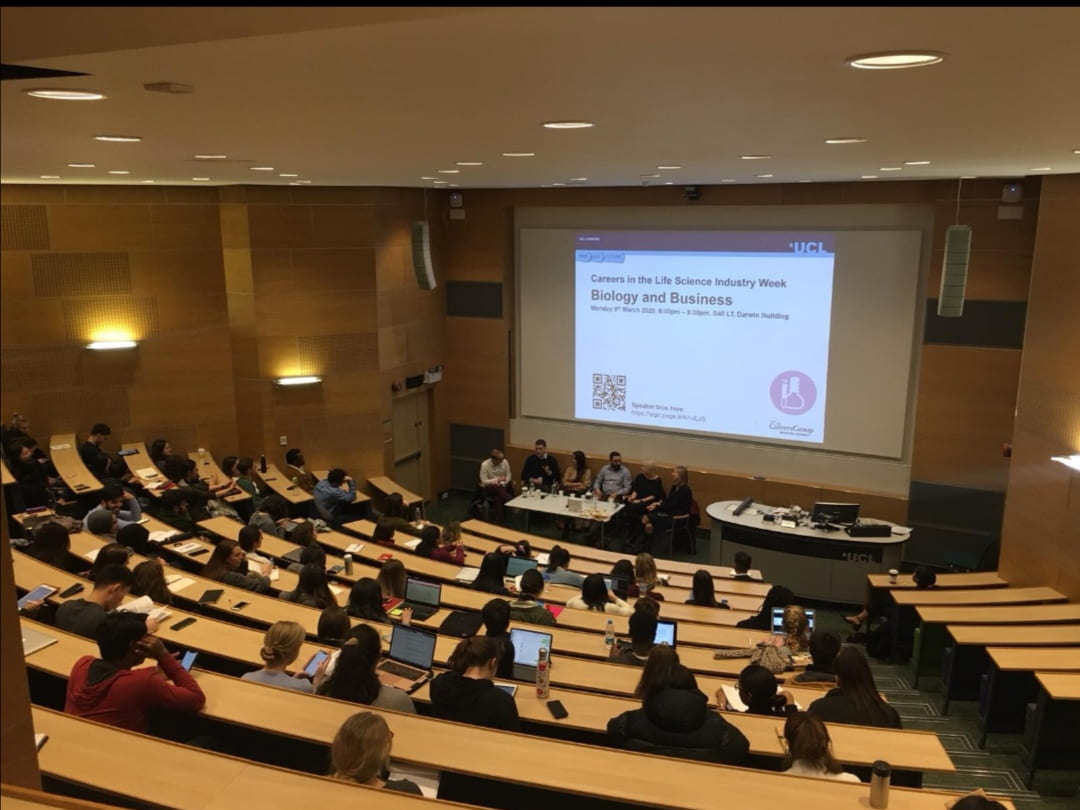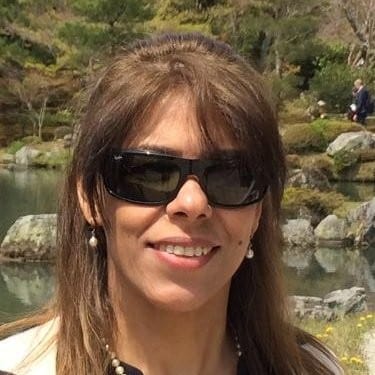Who wants to hear about working at WHO?
By uczjsdd, on 19 May 2022
 Dr Sarah Paulin gained her PhD in Pharmaceutics and Microbiology here at UCL, and is now a Technical Officer in Antimicrobial Resistance at the World Health Organization. Sarah kindly took the time to chat to us about her career journey and current role, and shared tips for researchers wanting to follow a similar path.
Dr Sarah Paulin gained her PhD in Pharmaceutics and Microbiology here at UCL, and is now a Technical Officer in Antimicrobial Resistance at the World Health Organization. Sarah kindly took the time to chat to us about her career journey and current role, and shared tips for researchers wanting to follow a similar path.
What are you up to at the moment?
I work at WHO headquarters in Geneva in the area of antimicrobial resistance, which was the topic of my PhD. Now I focus less on the microbiology and more on supporting countries in their efforts to contain antimicrobial resistance, primarily focusing on lower-income countries, in all regions, but largely the African region.
How did you get from your PhD to here?
My PhD was laboratory-based, and while writing up my thesis I realised I was motivated by working with people and building capacity in under-resourced areas. Lab work can form part of that, but it’s one small aspect of the larger picture, and I really enjoyed working with that larger picture. For me, that meant moving into Public Health. Knowing this, I took every opportunity to ensure my thesis had a focus on the public health aspects of my work. I also took advantage of UCL courses, in particular for PhD students wanting to move out of academia, where I gained insight into what was possible, and learned more about my personal skillset and what was transferable from a lab-based PhD. I also attended a UCL CV session, which helped me get my CV ready. And I started talking to people within UCL and externally, trying to understand my options.
WHO was not the first or only place I applied. I also applied to The Clinton Health Access Initiative, for a role straddling lab work and public health. In the end I didn’t take the job, but it was a great experience in trying to sell myself outside academia. Then I saw a consultancy role based in a WHO regional office in the Philippines. I tailored my CV, sending it to a few peers to check it made sense, and I was given an interview. They were looking for someone specialising in antimicrobial resistance, and at the time few people had completed a PhD in that area, so my background helped. It meant relocating to the Philippines, but that fit in ok with my life at the time. And the role was only for three months, but everyone has to start somewhere, so I went for it!
I was a consultant for one and a half years after they extended the consultancy from its initial three months. It didn’t have the permanent nature or safety net of some other options, but I was willing to stick it out and wait for a staff position, and when it came up I won it and stayed in Manilla for three and a half years, travelling around the 39 countries and areas the region covers. After that I was recruited to move to headquarters, where I have applied and moved up into two different jobs, and that’s where I am now.
What were the toughest parts of the transition?
Going into the unknown was challenging. Once you go outside of the academic path, it’s hard to get back in, so it’s a difficult decision to make. I was also unsure I would even be accepted into a public health role – and I was actually willing to take a volunteering role to begin with because of this. But taking the classes UCL Careers offered, and meeting others who were also looking to make the jump beyond academia, was incredibly helpful and reassuring, because then I knew I wasn’t alone or crazy in wanting to get off the academic path. It’s only when you start talking to others and go to these presentations of others who have made the transition successfully, that you realise you can do it as well. I realised I just needed to try and believe in myself, which is not always easy! But one of the qualities you can learn during a PhD is to be able to believe in yourself.
It was also challenging financially at times, and it helps if you have a bit of a safety net as well, which not everyone has. Volunteering and internships are often unpaid or low pay, consultancy can be poorly paid (I lived in a tiny studio in Manilla when I first started), but at the end of the day I felt it was worth it.
Thankfully, things are slowly getting better for people wanting to enter the field, as today there is a small stipend for WHO interns, and of course Geneva is a more expensive place to live, so people should also look for options in WHO regional or country offices, which can be more affordable. There are also many opportunities for scholarships once you start looking into them. It takes longer to apply, but there are possibilities to get additional funding to the stipend for these opportunities.
Is it normal to start as an intern at WHO?
Definitely. In non-COVID times, WHO offers internships, which is something I had done during my undergrad. Mine was a very short internship, just to get an insight into public health before going into the lab side, and at the time I didn’t think I was coming back, but now I’ve come full circle! So people usually join as an intern, maybe during the summers of their Bachelors or Masters programme. Internships are anywhere between 6 weeks and two or three months, so some people may be able to fit it in during a PhD if that can be agreed upon with a supervisor etc., and then you’d have some public health experience on your CV by the time you graduate. Then an appropriate consultancy opportunity might arise, and once you’re a consultant you get to know a region and technical area, so of course your CV is much more favourable if a relevant staff role becomes available. If you want to move into global public health, getting to know the realities on the ground through in-country experience is a great place to start.
What does a normal working day look like for you?
Currently, I’m creating a new global guidance document to support countries in developing their policies around antimicrobial resistance. This covers technical innovations that need to be brought in, labs and diagnosis being one of the facets, but it also looks at infection prevention control, and at appropriate treatments. So you might find me working on that. But I would also have regular calls with different regional offices to organise training within countries; most recently we’re supporting Jordan for a leadership and governance training in this area, and I had a call with a regional office based in Egypt and the country office based in Jordan, and spoke to the country counterparts to organise the planning.
I would also probably join a webinar series and present on my area of work, and an external meeting with other implementing partners to offer input and advice into what they’re doing. And I would also do very normal admin, such as putting out a request for a proposal because the WHO needs support in technical assistance in country “X”. For example, in Sierra Leone we need someone to fly in and support them in the costing of their national policy, so I must run through the recruitment process and competitive bidding and get the contract in place, and then manage the resource mobilisation and financing for the role. So in any one day, or maybe week, there’s a big spectrum of work, from global technical to very country-specific support, and from bigger picture work to more fiddly admin work that supports all of it.
What are the best bits?
Definitely seeing the public health changes at the country level. When you organise and deliver a successful training to countries, be it in how they more effectively use their resources in terms of interventions, or ensuring their plans and policies are comprehensive and fit for purpose, and then you see that put into practice, it’s great. For example, if in two or three years down the line from your work, you see a reduction in inappropriate use of a certain antibiotic, that’s the most rewarding part for me. I also personally enjoy working in different locations and getting to know different cultures and health systems, I find it exciting, even if others might find it challenging, so that’s been one of the best bits.
Also, although no one works in public health because they’re chasing money (!), the UN does have quite a few benefits; there is great pension, child education, and health insurance for example. So if you view it as a whole, it’s a good package from an employer.
And what about the worst bits?
Admin, admin, admin. Working in a large UN organisation can be very bureaucratic. There are a lot of processes we have to adhere to and lots of forms to be filled out. This is all for good reason, but it makes putting things into practice rather slow, so that’s probably the most challenging thing. Another challenge is having to be careful about representing the organisation appropriately, because when I speak in my role, I represent the WHO.
Is a PhD an advantage in your role?
The PhD wasn’t asked for as a consultant, but for my most recent position, having a PhD was a desired educational background. So the further up you go at WHO or other public health agencies, the more advanced educational experience, such as a PhD, helps. And at the next level up from me it may be basically mandatory. I think there’s a mixture of reasons for that. There’s the very specific technical expertise that can be useful. There may even be slightly added credibility that the title brings. But there is also the transferable skill-set a PhD develops. I did my PhD in a very specific bacteria with a very specific resistance-mechanism, but it gave me the foundational science for the big-picture global and technical planning and policy work I do now. And as immediate results are rare in public health, the self-motivation, self-discipline, and perseverance a PhD instils is also extremely useful. And the communication skills, gained from writing papers and a thesis and presenting at conferences, are key.
What’s the progression like?
There aren’t many levels at the WHO, and it’s not automatic that one would progress through them. You have consultancies and staff positions. As a staff member at WHO we have “P” levels, from P1 to P6. I started as a P2 in my first contract after the consultancy, which I think was because of my PhD, I suspect if I hadn’t had that I would have started at P1. Where you start is based on years of experience generally, but you’re not automatically promoted as the years pass, you have to look for new opportunities as and when they arise, and then re-apply. I was in the P2 staff role for two and a half years and then moved to Geneva for a short-term role and then applied for my position at P3 level, usually requires five years of experience plus the educational qualification, usually a Masters, and then as of one year ago I applied for a P4 position, which is usually seven years of experience in the relevant area. The PhD usually counts partially as experience if it’s related to the area, and if say, you also had teaching responsibilities, that would partially count, so anything you did away from your pure research will count towards your years of experience. And then you can keep applying, and the goal for me is to eventually work in a country office again. So there’s not so many levels, and you do have to constantly re-apply. There is also not a great deal of job security – nothing is forever – but that also keeps it interesting because you’re kept on your toes, looking for work that continues to intrigue you.
So you’re not on a permanent contract?
No, the concept of a permanent position does not exist at WHO anymore, we generally have one to two year contracts that will be extended based on availability of funds and need. So even though it seems like it might be more stable than academia, sadly, it’s really not. People do tend to find new jobs if they want them though, so it’s a bit different to the precarity of academia in that way – and especially if you’re willing to be more flexible and move location, there will always be opportunities. I was flexible in moving to Manilla and Geneva to get these roles. I now have a family so the next decision will probably be to move again to another country, but that will be a decision I have to make with my family. But for me, I love the work and the travel, it works for me, but I know it wouldn’t work for everyone.
What are your top tips for researchers wanting to follow a similar path?
- Find opportunities to volunteer or learn more where you are, and add those types of experiences to your CV to set yourself apart from others. For example, I took part in the Brilliant Club, developing educational materials based on my PhD area and supporting and educating pupils from underprivileged areas in London, which strengthened my communication skills and my CV.
- Take any opportunity you can to test out whether public health is even something that would interest you – it’s not for everyone. Of course, those opportunities will also help build your CV.
- Talk to people. And start that as soon as possible. UCL has many opportunities for networking, and LinkedIn and other online platforms are increasingly useful for this. And in the world we’re now in, there are so many opportunities to join webinars and virtual conferences and listen in and then reach other to speakers or other attendees.
- Don’t just wait for the recruitment process to take its own turn, be proactive. One of the things I’ve learned through getting the consultancy role and later positions is that sending a personal email to the person recruiting may be helpful. They may not respond, but they may, and either way they may remember your name as someone enthusiastic with good questions.
Any extra advice for people graduating into an uncertain climate?
There definitely aren’t fewer opportunities in this field at the moment, and it actually may be that our more flexible and balanced working environment – with more people being able to work remotely and not necessarily having to immediately change country – means that these opportunities are open to more people. So I think it’s actually an exciting time to get into the job market. And as the world is a lot more virtual now, gaining additional skills to suit the world we’re living in will be beneficial for any area of work.
 Close
Close


 Dr Curtis Asante has a PhD in Neuropharmacology from UCL and is now an Associate Director at the Microbiology Society. We caught up with Curtis to hear about his career journey, and to get his advice, especially for those moving out of academia during uncertain economic times.
Dr Curtis Asante has a PhD in Neuropharmacology from UCL and is now an Associate Director at the Microbiology Society. We caught up with Curtis to hear about his career journey, and to get his advice, especially for those moving out of academia during uncertain economic times. 




 Dr Mariam Al-Laith has a PhD in immunopharmacology from UCL, and is now a Clinical Trials Manager at King’s College London. Many PhDs speak to us about moving into clinical trials, so we asked Mariam to give us the lowdown on her role and how she got there.
Dr Mariam Al-Laith has a PhD in immunopharmacology from UCL, and is now a Clinical Trials Manager at King’s College London. Many PhDs speak to us about moving into clinical trials, so we asked Mariam to give us the lowdown on her role and how she got there. Dr Rachel Greig has a PhD in Immunology and is now a Medical Science Liaison (MSL) at Incyte, a pharmaceutical company. We know a lot of you are interested in MSL roles, so we asked Rachel to tell us all about her job and how she got there.
Dr Rachel Greig has a PhD in Immunology and is now a Medical Science Liaison (MSL) at Incyte, a pharmaceutical company. We know a lot of you are interested in MSL roles, so we asked Rachel to tell us all about her job and how she got there. Dr Xun Yu Choong has a PhD in Neuroscience from UCL’s Institute of Neurology and is now a Life Sciences Strategy Consultant at IQVIA. Xun had some great insights to share when we sat down and chatted about his career.
Dr Xun Yu Choong has a PhD in Neuroscience from UCL’s Institute of Neurology and is now a Life Sciences Strategy Consultant at IQVIA. Xun had some great insights to share when we sat down and chatted about his career.